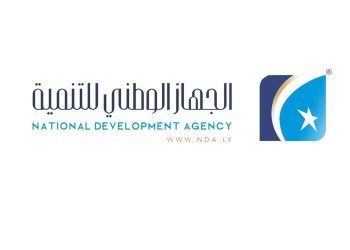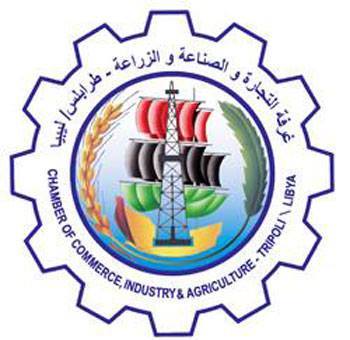Earlier this month, Libya’s Audit Bureau sent a letter to the state National Oil Corporation (NOC) instructing it to stop the barter system in importing fuels from international fuel refineries.
In response, the NOC protested the Audit Bureau’s instructions, considering its implementation would lead to a shortage of petrol and diesel.
NOC official detained for sub-standard fuel imports
The Audit Bureau’s move come on the back of the Public Prosecutor’s Office ordering the detention of the NOC official at its Supply Department, pending investigation, on charges of misusing state funds. The Public Prosecutor’s Office said the accused was involved in concluding fuel supply contracts that do not guarantee the maintenance of the public interest, and that he imported quantities of sub-standard fuel that caused damage to citizens’ cars.
Sub-standard petrol reportedly caused damage to cars
In May last year, several citizens in Tripoli, Benghazi and Sebha reported that their cars suffered technical malfunctions after refuelling with petrol from petrol stations, without knowing the reasons for the malfunction at the time. Overnight Libyan social media trended with ‘‘fake fuel’’ allegations. The Public Prosecutor’s Office announced on the 5 May 2022 the opening of an investigation into the allegations.
Commenting exclusively to Libya Herald on the saga, writer on economic affairs, Idris Al-Sharif, said that there are many unanswered questions to which there are no clarifications from the concerned authorities.
Why has the NOC stopped publishing data?
He said the most important of these questions is why didn’t the NOC publish a monthly report on the quantity and value of imported fuel and the quantity and value of crude oil that was bartered with?
Why did the NOC stop issuing its detailed monthly report on oil sales and its derivatives and their value supplied to the Central Bank of Libya, which used to be issued month by month during the previous administration, Al-Sharif continued.
He said the value of fuel imported through barter (of which large quantities are smuggled outside Libya) is no longer included in the state’s accounts or appears in the expenses of the subsidy section of the budget. This makes it difficult to review or monitor fuel imports.
Al-Sharif asked: is this the reason that finally pushed the Audit Bureau, after overlooking it for more than a year, to issue instructions to stop it?! Otherwise, why didn’t it stop it from the beginning instead of waiting for all this time? Why this late awakening, Al-Sharif asked.
The Audit Bureau violated the law by allowing NOC huge budgets
In Al-Sharif opinion, the Audit Bureau committed a violation of the law when it allowed the liquidation of 34 billion dinars to the NOC in one year, of which LD 15 billion were paid in one go at the end of the year. He noted that in the Audit Bureau’s 2020 Annual Report 2020 it pointed out that the NOC had not finalised its budget since 2007 and had not submitted any budget or final account to the Audit Bureau since 2011
Al-Sharif noted that previously the Audit Bureau had refused to liquidate any additional funds for the NOC except for salaries and the necessary minimum. This despite the NOC at the time issuing monthly reports on production, sales, and revenues supplied. How come, he asked, is the NOC now allowed to spend this huge amount, which was equivalent to the entire Libyan budget at one point in time, and is now equivalent to more than a third of the budget actually spent – despite the disappearance of any NOC financial reports?
He said the question about how fuel is supplied and the entities from which they are imported, some of which were the subject of investigations by the Public Prosecutor’s Office for the lack of quality of imported fuel – that opens up another whole set of questions.
There are no restrictions on imports by barter?
In his view, Al-Sharif, felt that there are no quantitative or financial restrictions on imports using the barter method. According to the indicators and some of the data he obtained, the increase in barter in 2012 exceeded 30 percent in the quantities imported from the previous year. The aim, he said, is to cover the fuel deficit that occurred in the market due to smuggling and cover the disappearance or hiding of the data that was previously published in an official way on the imported quantities and their value. However, he estimated that indications show that the value of barter trade may have exceed 9.5 billion dollars in 2022.
Al-Sharif also noted the fact that some fuel imports are supplied by intermediary companies, which raised ‘‘big question’’.
The barter system is a violation of Libyan financial law
For his part, leading businessman Husni Bey pointed out that fuel barter has existed in Libya since 1970, but in a different way and is considered a “semi-barter” or an internal barter. He said what happened before 2020 was a barter without settlements between the multi-components “the government, the NOC, the electricity company, the Libyan Iron and Steel Company, the state cement companies and the citizen: Everyone mentioned gets crude oil, gas or fuel in return for services such as electricity, which is obtained from fuel without paying for it. After 2020, a foreign party is added to this simple barter system with the NOC.’’
Bey nevertheless stressed that the barter system is considered a violation of the financial law of the Libyan state.
Crude oil bartering is an incorrect procedure
Mohsen Al-Derregia, former head of the Libyan Investment Authority (LIA) believes that Libya’s energy costs exceeds 31.5 billion dinars annually.
He pointed out that Libya consumes the equivalent of 300,000 barrels of oil per day to fuel electricity and cars. This amount is equivalent to 21 million dollars per day, or about 7 billion dollars annually at current prices, including the exchange of crude oil for derivatives.
He considered the procedure for bartering crude oil for oil derivatives is an incorrect procedure.
NOC barter transactions bypassing Finance Ministry
It will be recalled that the Audit Bureau had stated in its 2021 Annual Report that the NOC had carried out “unilateral actions that are negative for the competencies and authorities of the Ministry of Finance,” considering that these actions caused “distortion of the state’s financial data and showing it to be untrue.”
This, it added, was because of the NOC exporting oil shipments without collecting their revenues and replacing them with shipments of fuel outside the state budget, with a value that exceeded 16 billion dinars, without disclosing that to the Ministry of Finance. It also postponed the collection of taxes and royalties on oil companies at a value of US$ 10.4 billion that was supposed to be included in the revenues of the year 2021.
The Audit Bureau indicated that the state’s financial law specified the authority responsible for managing public money, which is represented by the Ministry of Finance, and the law also set controls for its use, spending and collection, through the general budget.
Switch power stations to run on gas
In the matter of the fuel consumption bill, the head of the Audit Bureau, Khaled Shakshak, sent a message to the Prime Minister Abd Alhamid Aldabaiba regarding taking all measures that would reduce the fuel bill at power stations by switching Ubari station to run on gas, as opposed to heavy fuel. It also proposed the construction of an offshore gas pipeline to supply all coastal power stations with gas. This would reduce the burden on the state budget, it added.









